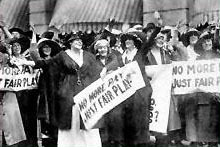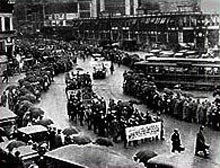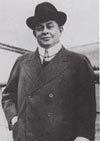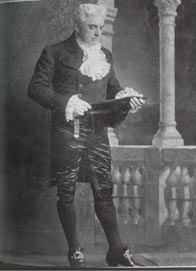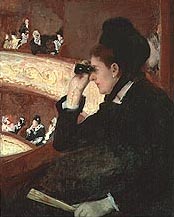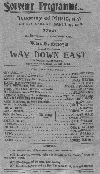Although the rationalization of the theatre may have increased
business for the front office, the working conditions for actors
did not improve. Managers and producers were less likely to be actors
who understood the daily working of the theatre. These businessmen
made demands including unlimited rehearsal time with no pay, half pay
during holiday weeks, a two week clause that allowed firing of actors
with almost total discretion, actors paying for their transportation to
performance locations, and often paying for their own costumes.
These conditions helped to rally the actors to fight together. Many
attempts were made, but it was not until May 26, 1913 that a functional
group was formed--the Actors' Equity Assocation. |
